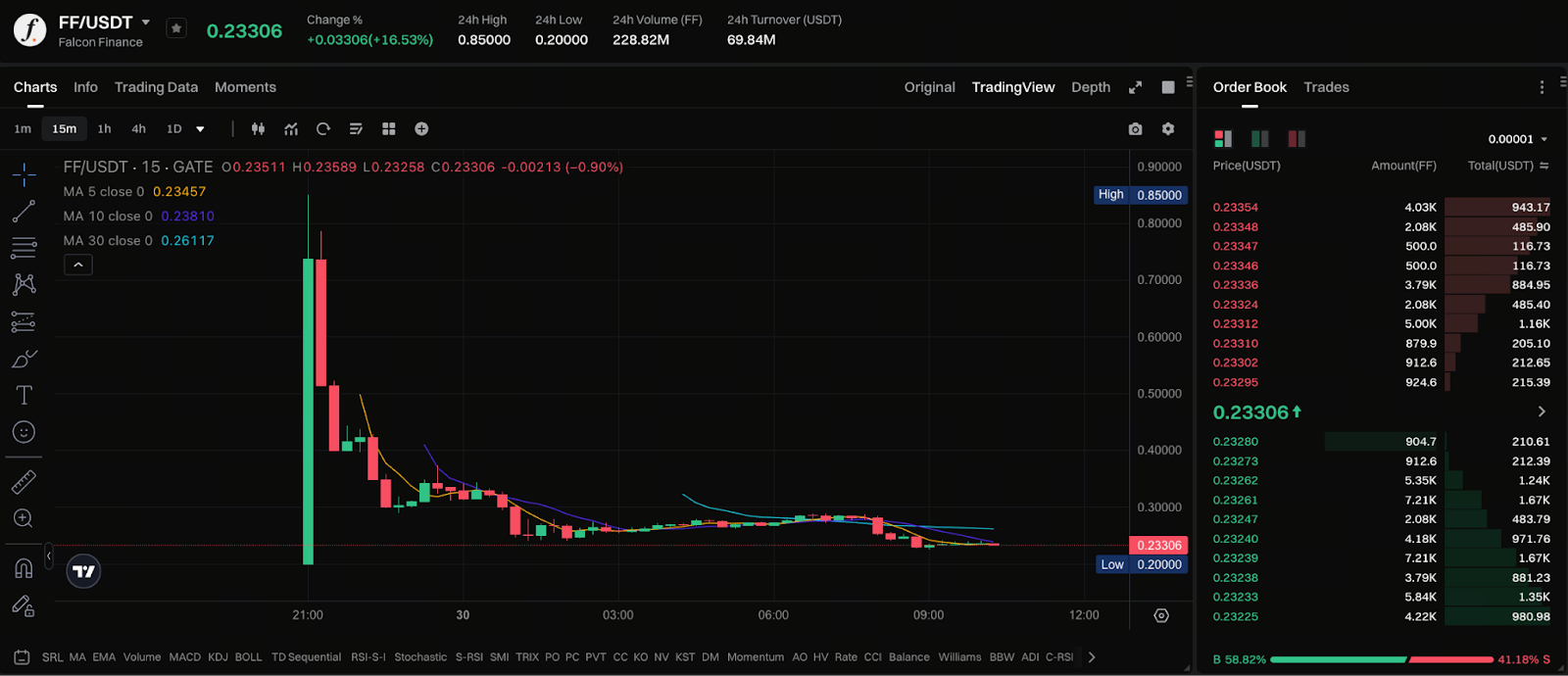Falcon Finance (FF) Beginner’s Guide: Comprehensive Analysis of the New Stablecoin Force
1. What is Falcon Finance / FF?
Falcon Finance is a CeDeFi (centralized + decentralized hybrid architecture) stablecoin and synthetic asset protocol with the primary goal of building a universal collateral infrastructure. Users can leverage multiple asset types as collateral to mint the synthetic USDf token, which is used for payments, investment, and cross-chain liquidity.
Unlike traditional stablecoins, Falcon does not rely on a single asset reserve. Instead, it prioritizes diversified collateralization, aiming to create a more flexible and resilient stablecoin ecosystem. The FF governance token is central to the ecosystem, powering governance, staking, and incentives.
2. Core Mechanisms and Highlights
- Multi-Asset Collateral: Supports BTC, ETH, stablecoins, and tokenized RWAs as collateral to generate USDf.
- Yield Redistribution: The protocol deploys collateralized assets for activities like market making and arbitrage, with a portion of the yield redistributed to holders.
- Transparency Mechanism: Falcon discloses reserve balances and collateralization ratios to enhance transparency.
- RWA Expansion: Future plans include introducing bonds, funds, and other real-world assets to broaden the ecosystem.
These mechanisms not only improve USDf’s stability but also position Falcon as a comprehensive platform for multi-asset collateralization, synthetic assets, and shared yield.
3. Latest Developments and Market Price Trends

Chart: https://www.gate.com/trade/FF_USDT
Falcon Finance has launched its community public sale for FF tokens. Millions of dollars participated on day one. The project has also secured strategic partnerships with multiple institutions, raising tens of millions of dollars, and plans to expand its RWA modules and integrate fiat over the next 18 months.
Currently, FF trades around $0.23. Overall, FF is still in the early stages of market development.
4. FF Tokenomics and Distribution Mechanism
- Total Supply: 10 billion tokens
- Initial Circulating Supply: Approximately 234 million tokens
- Distribution: Ecosystem incentives, foundation, team, early investors, and more
- Functions: Governance voting, staking rewards, unlocking ecosystem access
- Risk Points: Accelerated token unlock schedules may create short-term selling pressure
5. Investment Risks and Considerations
- Price Volatility: Low liquidity can cause significant short-term price swings.
- Collateral Risk: Multi-asset collateralization increases flexibility, but liquidation risk rises during major market downturns.
- Regulatory Impact: Stablecoins and synthetic assets are subject to evolving global regulatory policies.
- Unlock Pressure: Rapid unlocking by early investors can impact the token price.
- Project Execution: The team must validate the implementation timelines.
6. Participation Advice for General Users / Beginners
- Start with a small investment to get familiar with the protocol’s mechanisms.
- Keep track of Falcon’s collateral reserves and liquidation processes.
- Diversify: Avoid concentrating funds in a single project to mitigate risk.
- Long-Term Perspective: Users who believe in Falcon’s vision may choose to participate in long-term staking incentives.
Related Articles

Pi Coin Transaction Guide: How to Transfer to Gate.io

Flare Crypto Explained: What Is Flare Network and Why It Matters in 2025

How to Use a Crypto Whale Tracker: Top Tool Recommendation for 2025 to Follow Whale Moves

2025 BTC Price Prediction: BTC Trend Forecast Based on Technical and Macroeconomic Data

What is N2: An AI-Driven Layer 2 Solution
